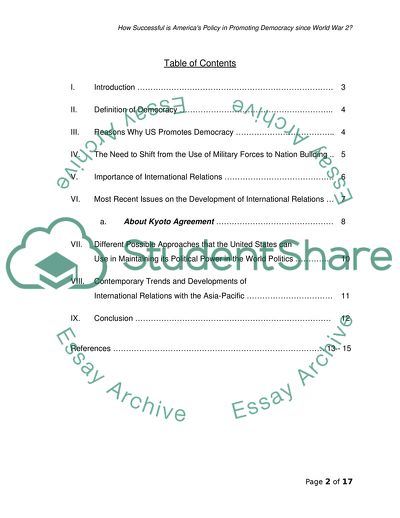Cite this document
(How Successful is America's Policy in Promoting Democracy since World Coursework, n.d.)
How Successful is America's Policy in Promoting Democracy since World Coursework. https://studentshare.org/politics/1715886-how-successful-has-americas-policy-of-promoting-democracy-been-since-world-war-2
How Successful is America's Policy in Promoting Democracy since World Coursework. https://studentshare.org/politics/1715886-how-successful-has-americas-policy-of-promoting-democracy-been-since-world-war-2
(How Successful Is America'S Policy in Promoting Democracy since World Coursework)
How Successful Is America'S Policy in Promoting Democracy since World Coursework. https://studentshare.org/politics/1715886-how-successful-has-americas-policy-of-promoting-democracy-been-since-world-war-2.
How Successful Is America'S Policy in Promoting Democracy since World Coursework. https://studentshare.org/politics/1715886-how-successful-has-americas-policy-of-promoting-democracy-been-since-world-war-2.
“How Successful Is America'S Policy in Promoting Democracy since World Coursework”. https://studentshare.org/politics/1715886-how-successful-has-americas-policy-of-promoting-democracy-been-since-world-war-2.


